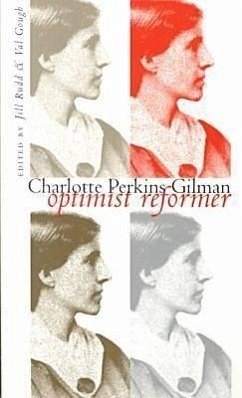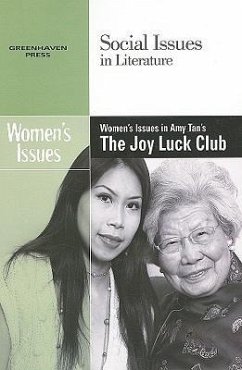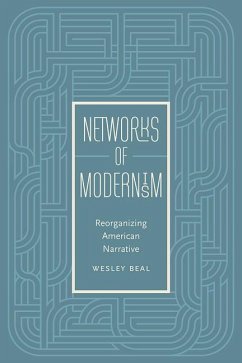
Charlotte Perkins Gilman: Optimist Reformer
Versandkostenfrei!
Versandfertig in über 4 Wochen
23,99 €
inkl. MwSt.

PAYBACK Punkte
12 °P sammeln!
Known to her contemporaries as a fervent advocate of reform on social, economic, and religious fronts, designated an "optimist reformer" by William Dean Howells, Charlotte Perkins Gilman (1860-1935) today is celebrated more as a writer of novels and short stories, particularly Herland and The Yellow Wallpaper, than as the author of the many social and political essays that originally made her so prominent. The essayists in this spirited volume return to Gilman's primary focus by reminding us that the main purpose of her writing was reform. Charlotte Perkins Gilman: Optimist Reformer looks at G...
Known to her contemporaries as a fervent advocate of reform on social, economic, and religious fronts, designated an "optimist reformer" by William Dean Howells, Charlotte Perkins Gilman (1860-1935) today is celebrated more as a writer of novels and short stories, particularly Herland and The Yellow Wallpaper, than as the author of the many social and political essays that originally made her so prominent. The essayists in this spirited volume return to Gilman's primary focus by reminding us that the main purpose of her writing was reform. Charlotte Perkins Gilman: Optimist Reformer looks at Gilman's legacy for women at the end of the twentieth century; in doing so its contributors reassess both her reformist ideas and our own views on fin de siecle feminism. Gilman scholarship has indeed moved on from the much needed recovery of her work to more critical treatments that allow us to acknowledge elements now regarded as unacceptable. As a result, the essayists here reappraise Gilman and her writings in ways that directly address hithertofore overlooked points, such as her racism, her almost willful disregard of issues of class, and her broadly essentialist view of women. The effect of this collection is thus twofold: Gilman and her works are both reassessed in light of current feminist thought and presented in the context of her own time. A constant theme is the recognition of her unwavering belief that things could be changed for the better; it is this persistent optimism that made her such a forceful voice for reform. Thus the essayists demonstrate that engagement with Gilman's reformist views is still pertinent for feminist debate today.












